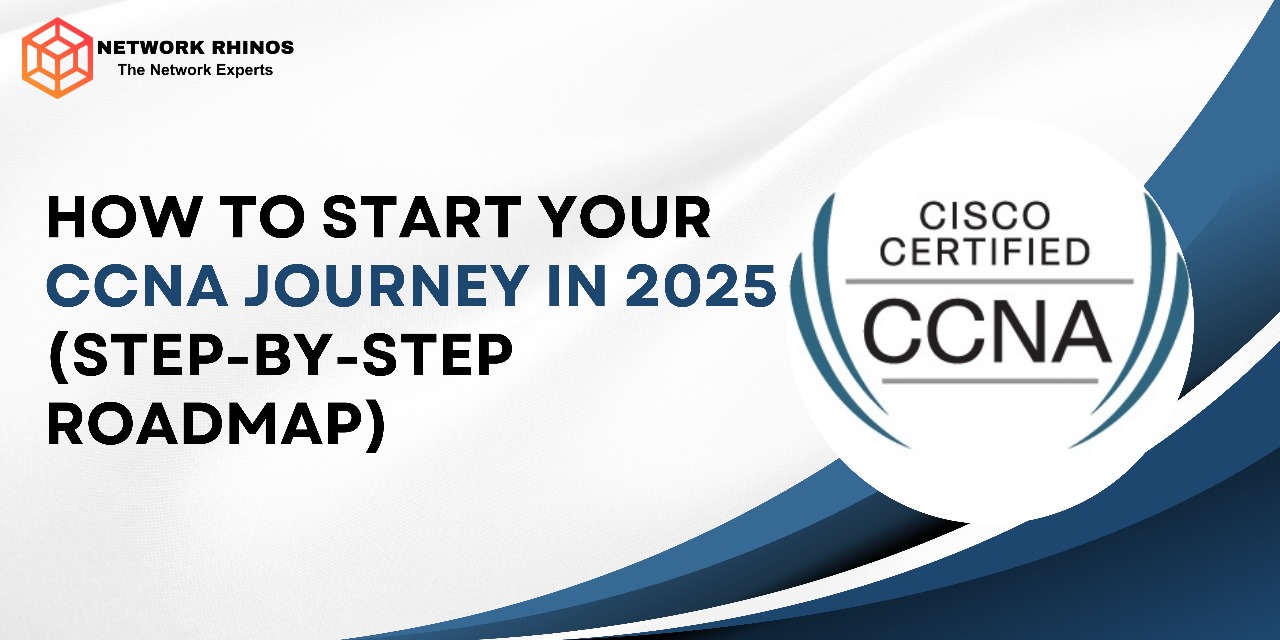CCNA: The Cisco Certified Network Associate Guide
CCNA, or Cisco Certified Network Associate, is a widely recognized certification in the field of networking. It is an entry-level certification that validates the skills and knowledge required to install, operate, and troubleshoot small to medium-sized enterprise branch network. CCNA certification covers a wide range of networking concepts, including routing and switching, security, wireless networking, and more. It is a valuable credential for IT professionals looking to advance their careers in networking and gain expertise in Cisco technologies. The CCNA certification is offered by Cisco, a leading provider of networking solutions and equipment, and is highly regarded in the industry.
CCNA certification is designed for individuals who have a basic understanding of networking and are looking to enhance their skills and knowledge in the field. It is an ideal certification for network engineers, network administrators, and IT professionals who work with Cisco networking devices. The CCNA certification is also suitable for individuals who are new to the field of networking and want to establish a strong foundation in networking concepts. By obtaining CCNA certification, professionals can demonstrate their expertise in networking and increase their job prospects in the competitive IT industry.
Why should you pursue CCNA certification?
There are several compelling reasons to pursue CCNA certification. Firstly, CCNA certification is widely recognized and respected in the IT industry. It is a valuable credential that can open doors to new career opportunities and help professionals stand out in the job market. Employers often look for candidates with CCNA certification when hiring for networking positions, as it demonstrates a strong foundation in networking concepts and Cisco technologies. Additionally, CCNA certification can lead to higher earning potential, as certified professionals are often able to command higher salaries than their non-certified counterparts.
Furthermore, pursuing CCNA certification can help professionals gain practical skills and knowledge that are essential for success in the field of networking. The certification covers a wide range of networking topics, including routing and switching, security, wireless networking, and more, providing a comprehensive understanding of networking concepts. This knowledge can be applied to real-world networking scenarios, allowing professionals to troubleshoot network issues, design efficient network infrastructures, and implement security measures to protect against cyber threats. Overall, pursuing CCNA certification can help professionals advance their careers, increase their earning potential, and gain practical skills that are in high demand in the IT industry.
What are the benefits of CCNA certification?
CCNA certification offers a range of benefits for IT professionals looking to advance their careers in networking. Firstly, CCNA certification can enhance job prospects and open doors to new career opportunities. Many employers look for candidates with CCNA certification when hiring for networking positions, as it demonstrates a strong foundation in networking concepts and Cisco technologies. Certified professionals are often able to command higher salaries and may have access to a wider range of job opportunities than their non-certified counterparts.
Additionally, CCNA certification can help professionals gain practical skills and knowledge that are essential for success in the field of networking. The certification covers a wide range of networking topics, including routing and switching, security, wireless networking, and more, providing a comprehensive understanding of networking concepts. This knowledge can be applied to real-world networking scenarios, allowing professionals to troubleshoot network issues, design efficient network infrastructures, and implement security measures to protect against cyber threats.
Furthermore, CCNA certification can lead to higher earning potential for certified professionals. According to PayScale, the average salary for a CCNA-certified professional is significantly higher than that of their non-certified counterparts. This means that pursuing CCNA certification can result in increased earning potential and financial stability for IT professionals. Overall, CCNA certification offers a range of benefits for IT professionals looking to advance their careers in networking, including enhanced job prospects, practical skills and knowledge, and higher earning potential.
How to prepare for the CCNA exam?
| Study Material | Study Hours | Practice Tests |
|---|---|---|
| Cisco Official Cert Guide | 100 hours | 5 practice tests |
| Video Tutorials | 50 hours | 3 practice tests |
| Online Forums | 20 hours | 2 practice tests |
Preparing for the CCNA exam requires dedication and a structured study plan. Firstly, it is important to familiarize yourself with the exam objectives and topics that will be covered on the exam. The official Cisco website provides detailed information about the exam objectives, including the specific topics that will be tested. This information can help you create a study plan and focus your efforts on the areas that require the most attention.
In addition to understanding the exam objectives, it is important to use a variety of study resources to prepare for the CCNA exam. This may include textbooks, online courses, practice exams, and hands-on lab exercises. Using a combination of resources can help you gain a comprehensive understanding of the exam topics and feel confident on exam day. It is also important to set aside dedicated time for studying each day and stay consistent with your study schedule.
Furthermore, practicing with hands-on lab exercises can be particularly beneficial for preparing for the CCNA exam. This allows you to apply your knowledge in a practical setting and gain valuable experience working with Cisco networking devices. Many online courses offer virtual lab environments where you can practice configuring routers, switches, and other networking equipment. By gaining hands-on experience, you can feel more confident in your abilities and better prepare for the practical aspects of the exam.
What are the career opportunities for CCNA certified professionals?
CCNA certification can open doors to a wide range of career opportunities in the field of networking. Certified professionals may pursue roles such as network engineer, network administrator, systems administrator, or IT manager. These roles typically involve designing, implementing, and maintaining network infrastructures, troubleshooting network issues, and ensuring the security and reliability of network systems.
Additionally, CCNA certified professionals may have opportunities to specialize in specific areas of networking, such as security or wireless networking. This can lead to roles such as network security specialist or wireless network engineer, where professionals focus on implementing security measures or designing wireless networks for organizations.
Furthermore, CCNA certification can lead to opportunities for career advancement and professional growth. Certified professionals may pursue advanced certifications such as CCNP (Cisco Certified Network Professional) or specialize in specific areas of networking through additional training and experience. This can lead to higher-level roles such as network architect or senior network engineer, where professionals are responsible for designing complex network infrastructures and leading large-scale network projects.
Overall, CCNA certification can lead to a wide range of career opportunities in the field of networking, including roles such as network engineer, network administrator, systems administrator, network security specialist, wireless network engineer, and more. Certified professionals may also have opportunities for career advancement and specialization through additional training and experience.
Tips for passing the CCNA exam.

Passing the CCNA exam requires thorough preparation and a strategic approach to studying. Firstly, it is important to create a structured study plan that covers all of the exam objectives and topics. This may include setting aside dedicated time for studying each day, using a variety of study resources, and practicing with hands-on lab exercises. By creating a study plan and staying consistent with your efforts, you can feel confident in your abilities and better prepare for the exam.
Additionally, it is important to practice with practice exams to familiarize yourself with the format and types of questions that will be on the exam. Many online resources offer practice exams that simulate the actual exam experience and provide valuable feedback on your strengths and weaknesses. By practicing with practice exams, you can identify areas that require additional attention and feel more prepared on exam day.
Furthermore, it is important to stay calm and focused on exam day. This may include getting a good night’s sleep before the exam, arriving early at the testing center, and taking breaks as needed during the exam. By staying calm and focused, you can approach the exam with confidence and perform at your best.
Resources for studying for the CCNA exam.
There are many resources available for studying for the CCNA exam, including textbooks, online courses, practice exams, and hands-on lab exercises. Textbooks such as “CCNA Routing and Switching Complete Study Guide” by Todd Lammle or “CCNA 200-301 Official Cert Guide Library” by Wendell Odom provide comprehensive coverage of the exam topics and can serve as valuable study aids.
Online courses such as those offered by Cisco Networking Academy or Udemy provide interactive learning experiences with video lectures, hands-on lab exercises, and practice exams. These courses are designed to help you gain a comprehensive understanding of the exam topics and feel confident on exam day.
Practice exams are also valuable resources for studying for the CCNA exam. Websites such as Boson or Pearson IT Certification offer practice exams that simulate the actual exam experience and provide valuable feedback on your strengths and weaknesses. By practicing with practice exams, you can identify areas that require additional attention and feel more prepared on exam day.
Finally, hands-on lab exercises are essential for gaining practical experience with Cisco networking devices. Many online courses offer virtual lab environments where you can practice configuring routers, switches, and other networking equipment. By gaining hands-on experience, you can feel more confident in your abilities and better prepare for the practical aspects of the exam.
In conclusion, pursuing CCNA certification can lead to enhanced job prospects, higher earning potential, practical skills and knowledge in networking concepts, career opportunities in various roles such as network engineer or network administrator among others. To prepare for the CCNA exam it is important to create a structured study plan that covers all of the exam objectives using various resources such as textbooks or online courses among others while practicing with practice exams will help familiarize yourself with the format of questions that will be on the exam while staying calm on exam day will help approach it with confidence.
In addition, networking with professionals in the field and seeking out hands-on experience through internships or entry-level positions can further solidify your understanding of networking concepts and provide valuable real-world experience. Furthermore, staying updated with the latest developments in networking technology and continuing education through advanced certifications can help you stay competitive in the ever-evolving field of networking. Overall, pursuing CCNA certification can open doors to a rewarding and dynamic career in the field of networking.
If you’re interested in pursuing a career in networking, you may want to consider obtaining your CCNA (Cisco Certified Network Associate) certification. This certification can open up a world of opportunities in the IT industry. To learn more about the benefits of obtaining your CCNA certification, check out this informative article on networkrhinos.com.




